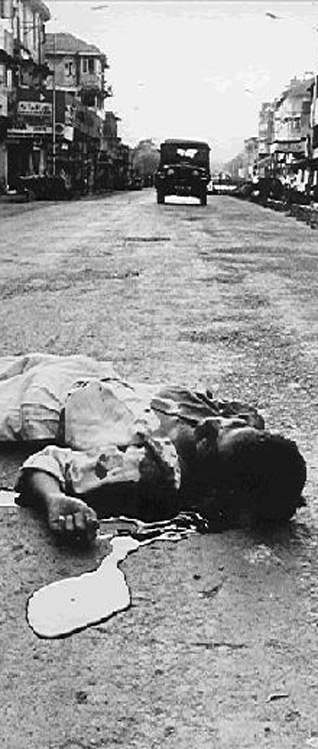Poetry
A Tale of Two Cities:
Carnage in Kishinev, Butchery in Delhi
SARBPREET SINGH
This is the fourth in a
series of poems and essays by Sarbpreet Singh, marking the 30th year since India's country-wide anti-Sikh pogroms of 1984.
Two cities
Miles apart
No common tongue
No common creed
Yet, bound by ties
That hidden lie
But if you slip off your skin
And let your spirit float
Silently
Among restless ghosts
A most vexing murmur
You will hear
Anguished cries
Heaving sighs
Bitter tears
Wracking fears
What tongue is this?
You will ask, perturbed
No answer, none
You ears will hear
For the spirits speak a language strange
Which is far, far beyond your ken
It is the tongue of every ghost
Of every maid and every crone
Of every mother and every child
Whose innocent life and smiling eyes
The savage sword of hate did blight
October 29, 2013
Conversation about this article
1: Harmeet Singh (USA), October 29, 2013, 11:37 AM.
Essentially, apocalyptic genocide and mass-murder has been glorified in Hindu scriptures such as the Bhagwad Gita as spirituality. The verse: "Now I am become Death, the destroyer of worlds," explains spiritual lust of the Hindu deity Krishna towards genocide and destruction, which are essential within the ambit of Hindu observance.



